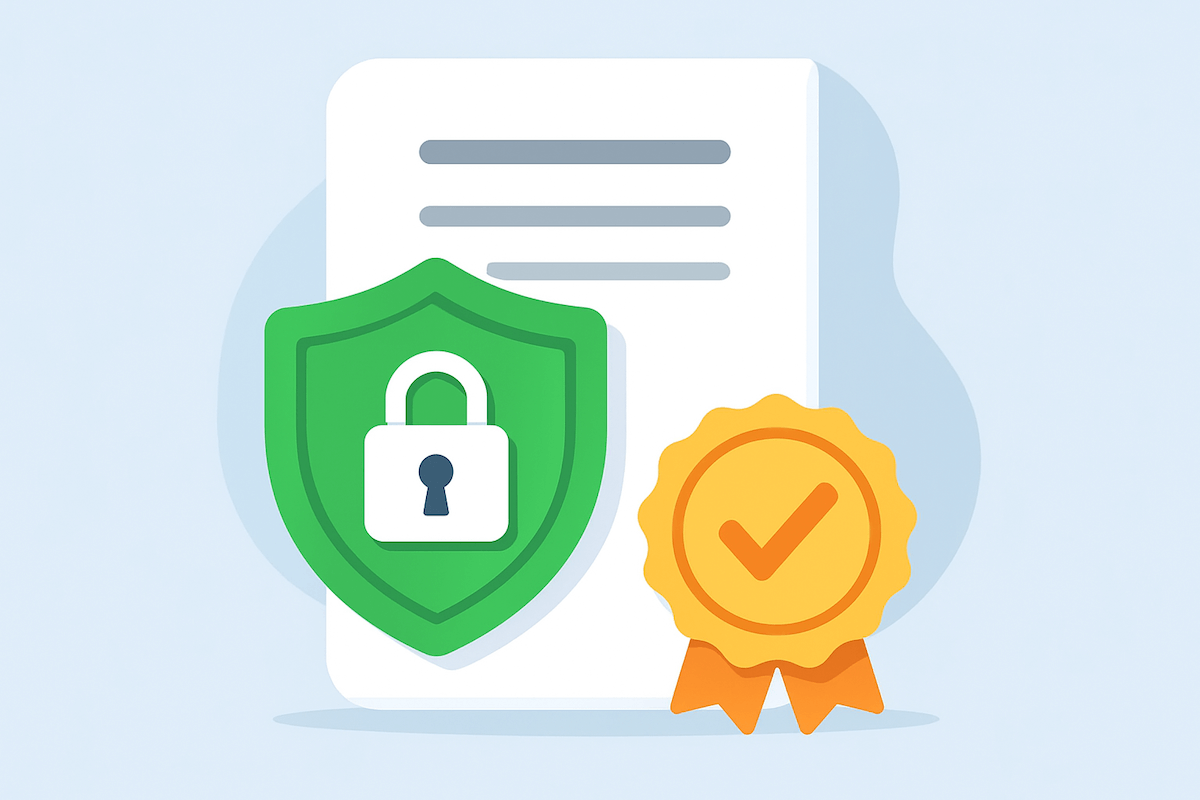SSL Certificate: What is it, why is it needed, how to get it

Why do you need an SSL certificate and how do you get one?
SSL is a technology that provides a secure connection between a site and a user. Thanks to this, all data exchanged between a PC or smartphone and a remote server is encrypted. And even if the traffic is somehow intercepted, it will be impossible to view it, as well as decrypt it. This is why an SSL certificate is needed. If the site has it, then to access you need to use an address like https://, not http://. The certificate itself contains a digital signature, which is confirmation that the domain name has its owner, whose identity has been confirmed by a certification center. And how to get it? And what will happen if you do not use SSL for the site?
Why do you need SSL for your website?
What does an SSL certificate provide? It not only provides encryption and indicates the owner of the resource, but also performs several important additional functions:
- protects all user data;
- meets browser requirements for modern IT security. Without SSL, Chrome, Opera, Firefox, Safari and other web browsers mark the site as unsafe;
- has a positive effect on SEO and the resource's ranking among search engines.
A website certificate is not only a security issue, but also an important component of the professional look of any website.
How an SSL certificate ensures user security
An SSL website security certificate uses asymmetric encryption. To do this, key exchange occurs when connecting to a resource:
- public, which is accessible to everyone and tied to the certificate;
- private, which is stored exclusively on the server and applies only to a specific connection session.
After successful verification of both keys, a secure communication channel is created, through which all data is transmitted. Most modern sites use AES256 encryption. It would take a regular computer more than a decade to decrypt such traffic, so the main function of an SSL certificate is to maintain user security.
Main types of SSL certificates: DV, OV, EV
There are three types of certificates, which determine the level of trust in them.
Types of SSL Certificates
| Type | What does it mean? | Trust level |
|---|---|---|
| DV | Domain Validation | Low — only checks the domain |
| OV | Organization Validation | Medium — verifies domain and legal entity |
| EV | Extended Validation | Highest — extended company verification |
It should be noted that an SSL certificate directly affects the level of trust in the site from the browser. And this also affects SEO indicators.
How to get a free SSL certificate
Most websites use free SSL certificates, which is more than enough to ensure security. You can get one through Let’s Encrypt, for example. Most hosting providers that provide services server rental, also offer a corresponding service. You can install it on your site via the control panel, utilities such as Certbot or a special plugin for working with CMS (for example, Wordpress has one). The free site certificate is valid for only 90 days, but then it is automatically renewed, so you don't need to get a new one every time. The exception is those resources that use EV certificates with extended verification, they are mostly obtained through registration centers.
Common mistakes when configuring SSL
The most common errors when setting up a https security certificate:
- incorrect redirection to HTTPS, which can cause search engines to perceive certain pages as duplicates;
- using mixed content, when part of the data is loaded via HTTP. Which resource will definitely be marked as dangerous, when opened a corresponding message will appear in the browser;
- use of outdated SSL protocols, TLS is relevant today;
- incorrectly configured certificate on subdomains. In this case, encryption is used only on the main version of the site, in such cases it is recommended to use a wildcard certificate, which is distributed to the whole domain group.
And is an SSL certificate needed for a site? Maybe it’s easier to do without it? Firstly, in this case, the connection with users will be unsafe, the probability of hacking, unauthorized access will be much higher. Secondly, modern browsers will display a message when connecting to a resource that the connection may harm user data. At the same time, the ranking positions for the site will be reduced.
SSL certificate and its impact on site trust and SEO
SSL is a sign of trust, it directly affects the reputation of the resource among search engines like Google or Bing. If a site uses outdated http, it will be displayed much lower in search results. This can lead to loss of traffic. SSL also affects behavioral factors. Users prefer those resources whose connection is marked as secure in the browser - this is indicated by the corresponding icon in the address bar (lock icon).
So, why do you need SSL certificates? This is one of the key tools for verifying the site owner and ensuring the security of data exchange. For all webmasters involved in the creation and maintenance of web resources, it is recommended to install HTTPS. You can get a certificate for free from your hosting provider or other registration centers.
It is also important to rent a server from a reliable, responsible provider. This is also taken into account in SEO, affects the level of trust from both users and search engines. Our company XServer provides the appropriate service. Our advantages: servers in different parts of the world, affordable prices, 24/7 service, assistance with site migration. We provide not only physical servers for rent, but also VPS hosting services with guaranteed resources. Our uptime is about 99.9%, you can also order backup of user data from us.